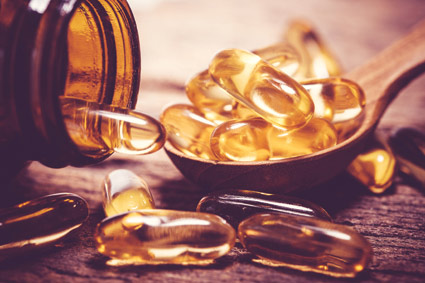
By Jonathan Evans
Herbal Information Specialist for the Herbarium
This month “D” is for dilemma. Recently I received an email article from Web MD talking about the many benefits of vitamin D. I also covered vitamin D last year in my series on vitamins and minerals.
It was good to see the regular medical community agreeing with the many uses of vitamin D for diabetes, multiple sclerosis, heart disease, depression, bone health and weight loss.
My dilemma concerns the amounts. The article cited the U.S. RDA (recommended daily amount) – or daily value. The RDA now indicated the average person (from 1 to 70 years of age) needs 600 international units (iu) daily, up from the old 400 iu recommendation. Older people – who do not absorb vitamin D as easily – should get 800 ius. The Web MD article also stated taking up to 4,000 ius daily was okay, but not any higher.
So why do the doctors hand out prescriptions of 50,000 ius in a once-a-week capsule? I have yet to get a satisfactory answer to that one.
Heart-healthy herbs
February being heart month leads to dozens of stories about heart health, and I suppose I should include some heart-healthy alternative medicine information for any new readers (and a refresher for you regulars).
The best and most benign heart herbs out there is hawthorn (Crataegus spp.). It is an excellent nutritive, restorative tonic for heart and blood vessels. Hawthorn dilates the coronary artery and improves blood flow to the heart muscle, strengthens the heart’s contractions, which improves the rate of blood flow throughout the body. It also maintains the integrity of venal and arterial walls, exhibits anti-inflammatory and antioxidant properties and regulates blood pressure, both high and low. The interesting thing to me has always been the compounds found in hawthorn are specific to mammalian smooth tissue – the heart. Birds eat the berries and spread the seeds but they derive none of the cardio benefits from the berries. Why are they in the berry? They do not play any role in the hawthorn tree’s life or survival. Who put them there for our benefit?
Another herb with a long history for heart health is motherwort – or Leonurus cardiac – an interesting Latin name for this plant. It translates to “lion heart.” Motherwort has traditionally been used to strengthen and normalize heart function. It is also a relaxing herb and is used in situations of anxiety and tension.
We used to say hawthorn was for the physical heart and motherwort was for the emotional heart.
Other herbs for heart health include ginkgo biloba, astragalus, and cayenne.
Lastly, magnesium is an important mineral for your heart. It can lower blood pressure, help with heart arrhythmias and clean out blocked arteries.
Even if you are on blood pressure medications, using some of these herbs and nutrients can lower your pressure and in some cases, help to reduce or eliminate your need for medication.
Got flu symptoms?
Flu season is in full swing and there is a nasty virus going around that really hits the respiratory system hard and hangs on for several weeks. Needless to say, if you get the respiratory bug, you need to check with your doctor to make sure you don’t have – or – get pneumonia. As far as the flu goes, whether you received a vaccine or not, there are a number of things that can help you ward off the flu or get rid of it. Here’s some suggestions:
Vitamin C is a first line of defense. It is an anti-inflammatory, antioxidant; it thins mucus, and boosts immune function.
Olive leaf and elderberry are very powerful anti-virals, and garlic is helpful for any and every respiratory problem. One simple way to use garlic (if you do not like the taste) is in a steam. Here’s how to do it: chop up four or five garlic cloves and place them in a large bowl. Cover with boiling water and put a cover on the bowl. Let some steam build up. Cover your head and shoulders with a bath towel, slide the cover off and breathe deeply, sucking that steam deep into your lungs.
I feel silly saying this but I am required to state “D0 not put your face down in the steam! It WILL burn you!” Let the steam come up to you.
Garlic is anti- viral, antimicrobial and antibacterial. The compounds in garlic are coming in direct contact with the lung tissue when you breathe in the steam and can help kill the virus.
I hope the suggestions above help you if you get this respiratory problem this year.
— Jonathan
Send questions on botanical remedies to: Natures Rx: Jonathan Evans at herbarium258@gmail.com, or by regular mail to: The Herbarium, 264 Exchange St., Chicopee, MA 01013. If requesting additional info, include a self-addressed stamped envelope. Find The Herbarium online at www.theherbarium.com, call the store at 413-598-8119 or join our Newsletter: http://eepurl.com/bUONF1